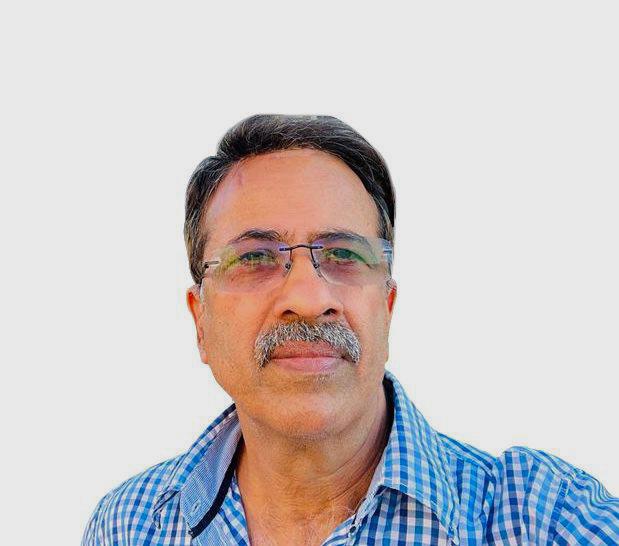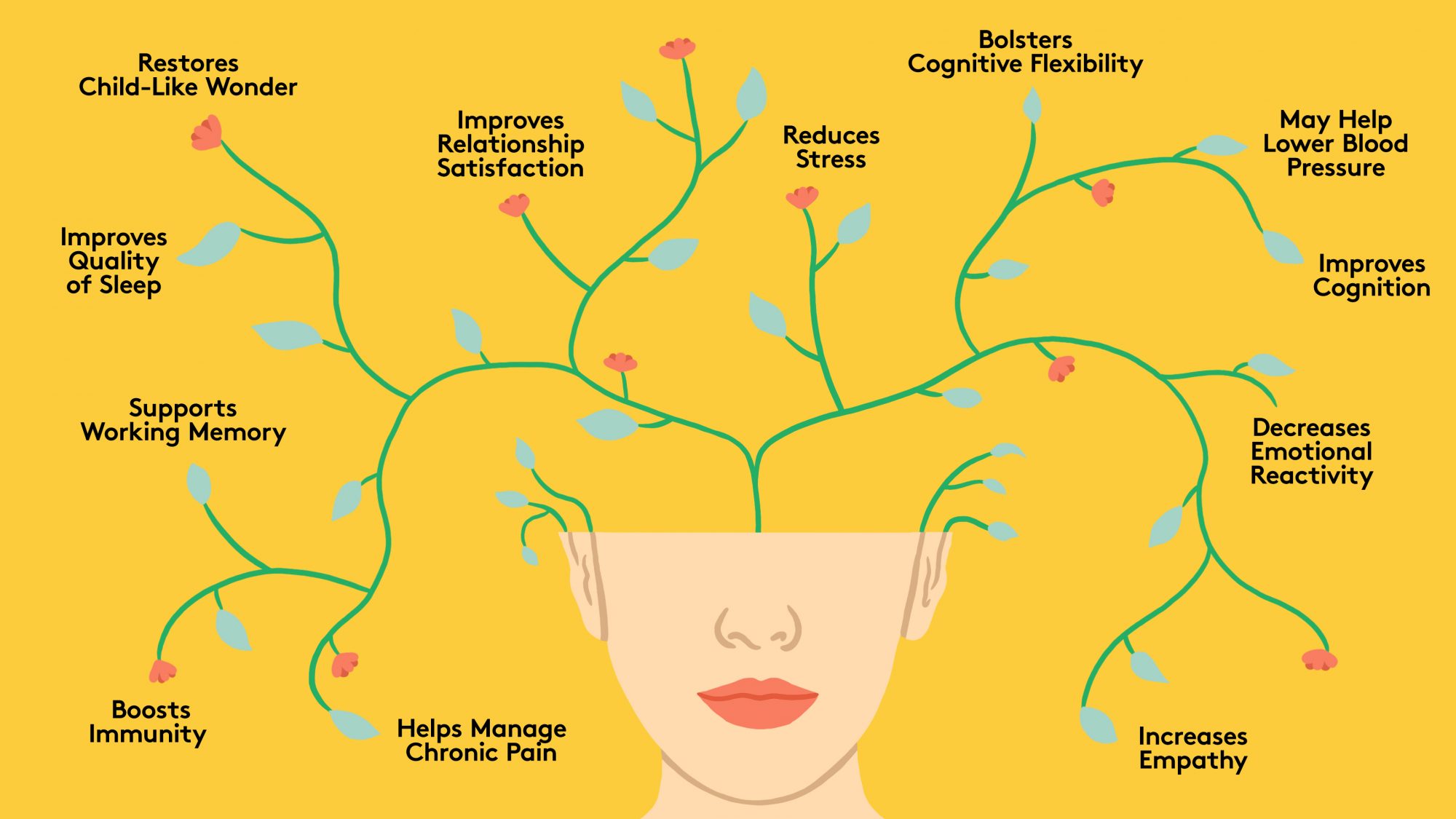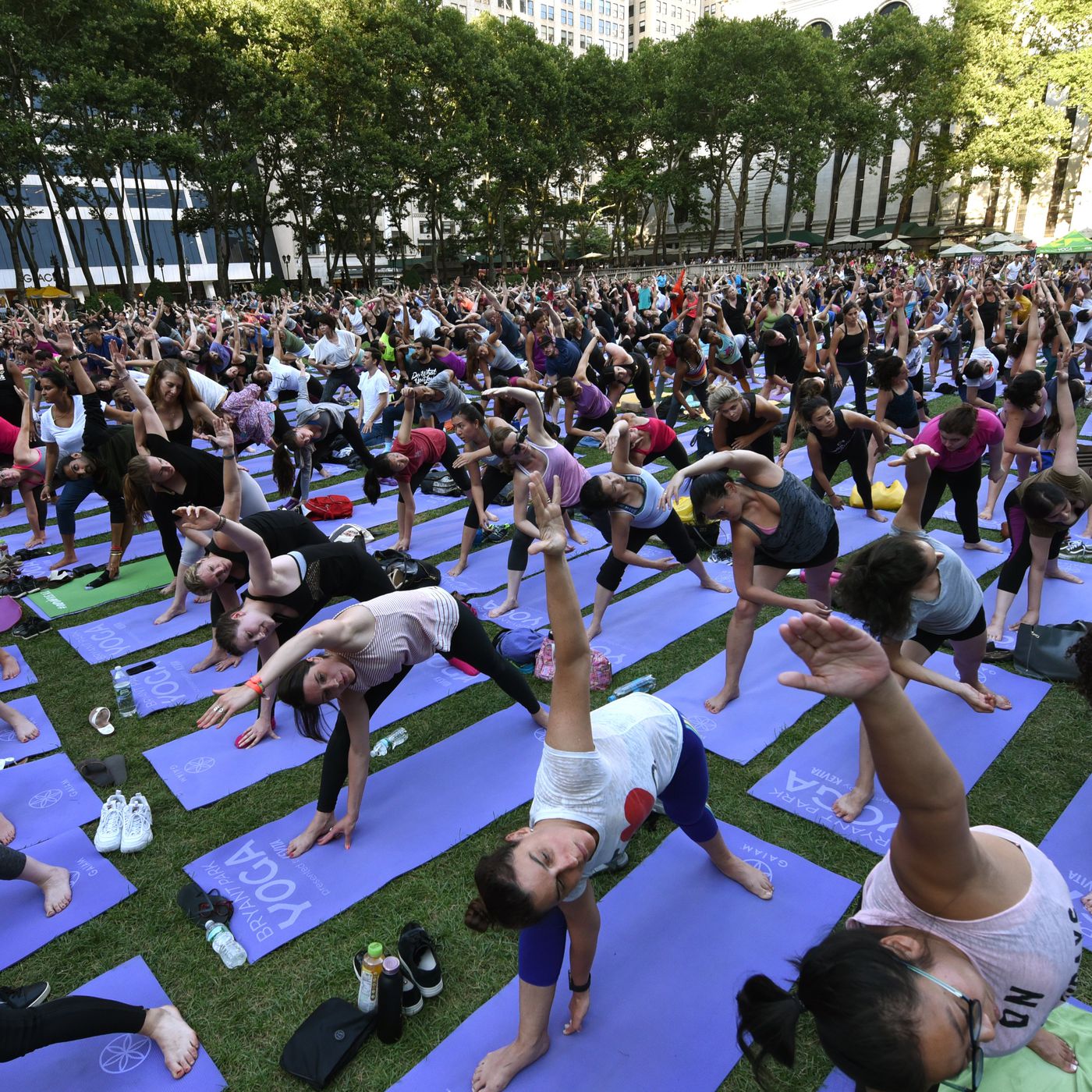Mindfulness and Mental Wellbeing
 When we are mentally disturbed or bored with the ongoing task, mind wandering increases, it’s as high as 70% when we suffer from boredom and loneliness….
When we are mentally disturbed or bored with the ongoing task, mind wandering increases, it’s as high as 70% when we suffer from boredom and loneliness….
By Balvinder Kumar
As we know that Mindfulness is emerging as a great hope for humanity in promoting mental wellbeing through self-awareness and mindful living among the masses. The mindfulness movement, being considered as a multi-billion-dollar industry, gains popularity across the world. Its key factors like Meditation and Yoga, two ancient practices, are now among the most popular alternative health practices in the United States. According to the survey conducted in 2017, nearly 14.2% of people practiced meditation, in contrast to just 4% in 2012.
More and more Fortune-500 companies have introduced mindfulness-based meditation in their workplaces. In addition, many medical institutions and hospitals have introduced this practice to alleviate chronic stress and pain. Similarly, various forms of meditation, including mindfulness-based meditation, are becoming popular in India among a large segment of society.
 Jon Kabat-Zinn, an American professor emeritus of medicine and the Centre for Mindfulness at the University of Massachusetts Medical School, USA, is responsible for making mindfulness a global movement. His initial studies on mindfulness led to the publication of a large number of research papers highlighting its benefits on physical and mental wellbeing. People then started realizing its potential for humanity as a whole. Kabat-Zinn famously remarked in a 2019 publication, “We have the potential to ignite a global renaissance catalysed by the cultivation of mindfulness and heart fullness at this critical juncture in the arc of human evolution and development.” According to him, the cause of dissatisfaction and distress among us lies in our heads, and it’s a ‘thinking disease.’
Jon Kabat-Zinn, an American professor emeritus of medicine and the Centre for Mindfulness at the University of Massachusetts Medical School, USA, is responsible for making mindfulness a global movement. His initial studies on mindfulness led to the publication of a large number of research papers highlighting its benefits on physical and mental wellbeing. People then started realizing its potential for humanity as a whole. Kabat-Zinn famously remarked in a 2019 publication, “We have the potential to ignite a global renaissance catalysed by the cultivation of mindfulness and heart fullness at this critical juncture in the arc of human evolution and development.” According to him, the cause of dissatisfaction and distress among us lies in our heads, and it’s a ‘thinking disease.’
Lack of self-awareness:
When we ask people in general whether they are self-aware, the answer would be positive. But you will be surprised to know that majority of us are hardly self-aware. We invariably have very little self-awareness, though we are confident of being fully self-aware. To be self-aware is a meta-skill and limited to find in ourselves. According to one psychologist and researcher, Dr. Tash Eurich, though 95% of people say they’re self-aware, only 10-15% of people actually are. It means nearly 80% of people are lying to themselves. What a great irony about us – knowing so little about ourselves but feeling so confident about possessing ‘self-awareness.’ This is also why we find it challenging to manage our thoughts and mind.
We are mostly not mindful:
Besides lacking self-awareness, we miss present moments in our daily lives. Our mind has an inherent tendency to wander unless we are attentive and focused on something. Even for a few minutes at a stretch, it’s extremely tough for anyone ‘to be present in the moments at hand’. Our mind starts wandering in different directions when we try to concentrate or focus on anything. Close to 50% of the time, our mind wanders. Serious efforts are required to keep our minds focused on any activity. When we are mentally disturbed or bored with the ongoing task, mind wandering increases, it’s as high as 70% when we suffer from boredom and loneliness.

We are often not paying close attention to what’s happening in our minds and body in real-time. Being mindful is when we know what is happening in and around us. As a result, we often become mindless, impulsive, and reactive when we are not present and fully conscious of those moments. We also become prone to miss valuable experiences because we are, in a sense, not ‘awake’ during those times. The same happens when we work, eat, walk, talk to others, and so on; we are in a way ‘unconscious’ and invariably lost in our inner world.
Not being mindful has a huge cost. We tend to keep on worrying, ruminating, and getting trapped in a loop of negative, distressing, and depressive thoughts. This is the reason that these conditions may lead to mental health problems of varying degrees.
Are we becoming unhappy, highly stressed, intolerant, and mentally sick?
There is hardly any doubt in saying that we have been, as a whole, becoming more and more mentally stressed, lonely, agitated, and dissatisfied with our life’s conditions in India. These are modern-day maladies. There is a growing feeling of emptiness and lack of meaning among a large section of society. In addition, lifestyle diseases among us are rising sharply, making us more mentally and physically sick despite increasing life expectancy.
 India is supposed to be the worst as far as mental stress is concerned. According to one study, more than 85% of the population suffers from mental and psychological stress. Not only mental stress but even mental illnesses are taking an epidemic shape. So we can say that our country is the worst nation for mental sickness. As per WHO (World health Organisation) report, over nine crores of Indians, or 7.5 percent of the country’s population of 1.3 billion, suffer from some form of mental disorder,.
India is supposed to be the worst as far as mental stress is concerned. According to one study, more than 85% of the population suffers from mental and psychological stress. Not only mental stress but even mental illnesses are taking an epidemic shape. So we can say that our country is the worst nation for mental sickness. As per WHO (World health Organisation) report, over nine crores of Indians, or 7.5 percent of the country’s population of 1.3 billion, suffer from some form of mental disorder,.
The prevalence rate could even be higher. In between, the suicide rates have become higher than murders in most countries. In India, the rate is five times high. This shows the sorry state of affairs regarding our mental health. We are not, in general, able to manage our minds and thoughts. We are not self-aware, fully ‘awake, and mindful of our inner and outer world. For that, we need to cultivate mindfulness in our lives. Mindfulness must become a part of our lives.
What exactly is mindfulness?
Mindfulness is nothing but our ability to be present at the moment and observe whatever is happening around us in a non-judgmental way. We experience the highest state of awareness at that time when we are attentive and focused on the moments at hand. This state is known as mindfulness. Those who experience mindfulness are aware and awake in those moments. Hence, they are conscious of the thoughts, emotions, and feelings they experience from time to time. Therefore, they are mindful during those times.
Mindfulness is the key to enhancing self-awareness, conscious behaviour, and mindful action in our life: When people are aware of what’s happening inside their minds and surrounding environment, their behavior, emotions, and actions are not impulsive and reactive. They are not on ‘autopilot mode.’ Instead, they respond to the situation as per the demand of that particular moment. They are ‘mindful ‘during those moments. Greater our self-awareness and the ability to be present more, we can start experiencing mindfulness in our day-to-day life. As a result, we begin mindful living.
It’s not easy to become ‘mindful’ and self-aware overnight; we need to cultivate mindfulness gradually and persistently. There are many ways to practice mindfulness, but meditation is supposed to be the most effective. The more we practice mindfulness, the more we live in the present. Once we start living mindfully, we become increasingly aware of what is happening inside our heads and outside reality. This is called meta-awareness, to be aware of our awareness. When we are stressed or emotionally disturbed, we are able to regain equilibrium much faster if we live mindfully. In other words, we recover more quickly from virtually any emotional disturbance.
When we suffer from anxiety, stress, and negative or depressing thoughts, the amygdale (region of the brain primarily associated with emotional processes.) is very active. As we practice mindfulness, the amygdale, in those moments, starts resuming normal function much faster. As a result, persons who are mindful can effectively manage their minds and thoughts. They can, with greater ease, come out from the vicious circle of getting trapped in negative and distressing thoughts. Though we can’t eliminate mind wandering all the time, through mindfulness, it starts reducing. We become more and more focused and attentive over time.

Role of mindfulness in our mental wellbeing
There have been a large number of research studies that support the claim of having a positive impact of mindfulness in different areas of mental health, including stress reduction, emotional regulation, reduced worrying and rumination. Even it helps in alleviating symptoms in mild to moderate cases of depression and anxiety. Few studies confirm that mindfulness can benefit people in overcoming addictions, especially smoking.
Clinical benefit of practicing mindfulness:
Jon Kabat-Zinn, Ph.D., introduced an 8-week program MBSR, i.e.,’ mindfulness-based stress reduction, which is widely used worldwide for clinical use to treat stress and chronic pain. This program is based on traditional Buddhist practices of mindfulness and meditation. The course is supposed to be very helpful in overcoming chronic mental stress conditions in everyday life. The mindfulness exercises are designed to help people to overcome their regressive mental habits and start living more in the present.
 How to develop mindfulness:
How to develop mindfulness:
The only way to develop mindfulness is to practice and experience more and more present moments. We should try to maximize our experiences of being fully aware and awake. We need to make a conscious effort to bring back our wandering minds to the present. We should develop a habit of doing this simple exercise of bringing back our attention to the present. This should be in the back of our minds all the time. When we walk, eat, work, play, watch TV, listen to others, and so on, we should be able to focus and be present on that particular activity to the maximum possible extent. Though it sounds simple and easy in reality, it isn’t so easy.
We generally don’t observe our thoughts. Our habitual and conditioned behaviour is at work most of the time. However, with conscious efforts, we can become more and more mindful of the practice of mindfulness. It is hard to believe that mindfulness-based meditation is a mental exercise that can potentially transform our lives. Studies have pointed out that even our aging process can be slowed down by taking care of mental stress.
People become happier and more peaceful when they practice meditation. When we meditate, we observe our stream of constant thoughts that arise in our mind in a non-judgmental way; our mind becomes quiet and peaceful. Also, we keep on bringing our attention back to breathing when we practice breathing-based meditation.
As we develop the habit of being mindful and self-awareness, we begin to manage our minds and thoughts effectively. Once we have better control over our minds and, therefore, our lives, it becomes easy to handle life’s adversities and challenging times. We can come out from those times, comparatively speaking, more quickly. With mindfulness, not only do we become more self-aware, internally vigilant, and fully conscious, but we can come out during the bad phase of our life. Besides, we start experiencing better physical and mental well-being in our lives.
(The author is retired IAS: Youtube channel: Exploring Life and blog: balvinder.org,)

